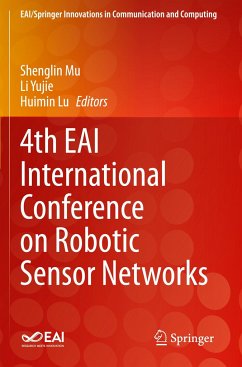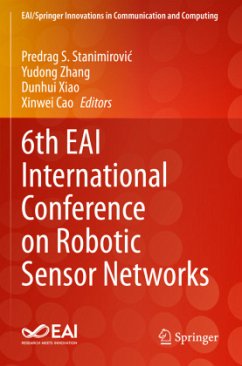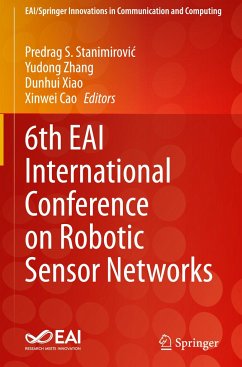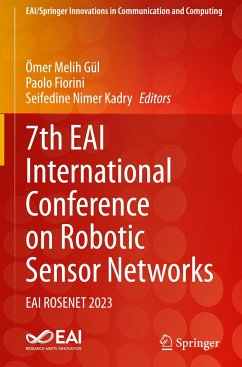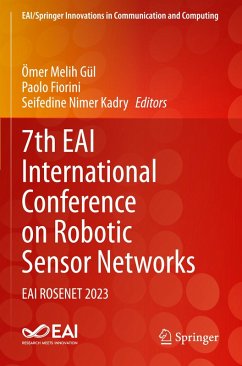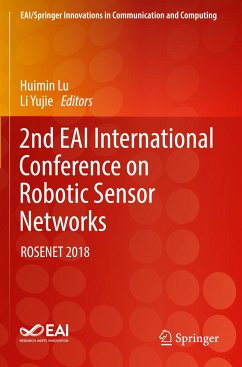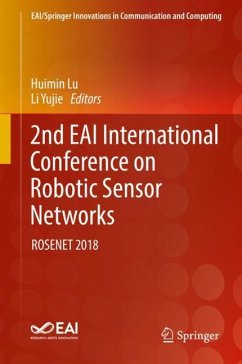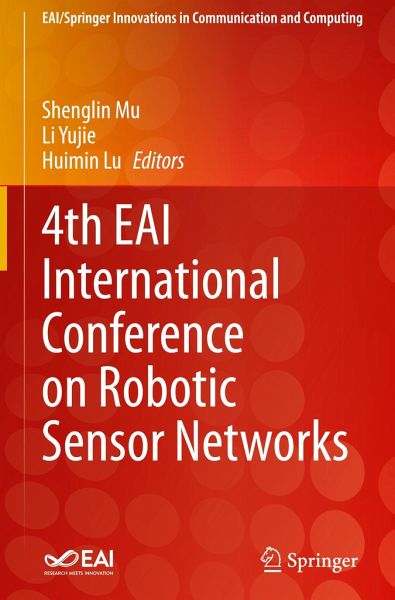
4th EAI International Conference on Robotic Sensor Networks

PAYBACK Punkte
0 °P sammeln!
This book presents papers presented at the 4th EAI International Conference on Robotic Sensor Networks. The conference explored the integration of networks and robotic technologies, which has become a topic of increasing interest for both researchers and developers from academic fields and industries worldwide. The authors explore how big networks are becoming the main tool for the next generation of robotic research, owing to the explosive number of networks models and the increased computational power of computers. The papers discuss how these trends significantly extend the number of potent...
This book presents papers presented at the 4th EAI International Conference on Robotic Sensor Networks. The conference explored the integration of networks and robotic technologies, which has become a topic of increasing interest for both researchers and developers from academic fields and industries worldwide. The authors explore how big networks are becoming the main tool for the next generation of robotic research, owing to the explosive number of networks models and the increased computational power of computers. The papers discuss how these trends significantly extend the number of potential applications for robotic technologies while also bringing new challenges to the networks' communities. The 2nd EAI International Conference on Robotic Sensor Networks was held online on November 21-22, 2020.



